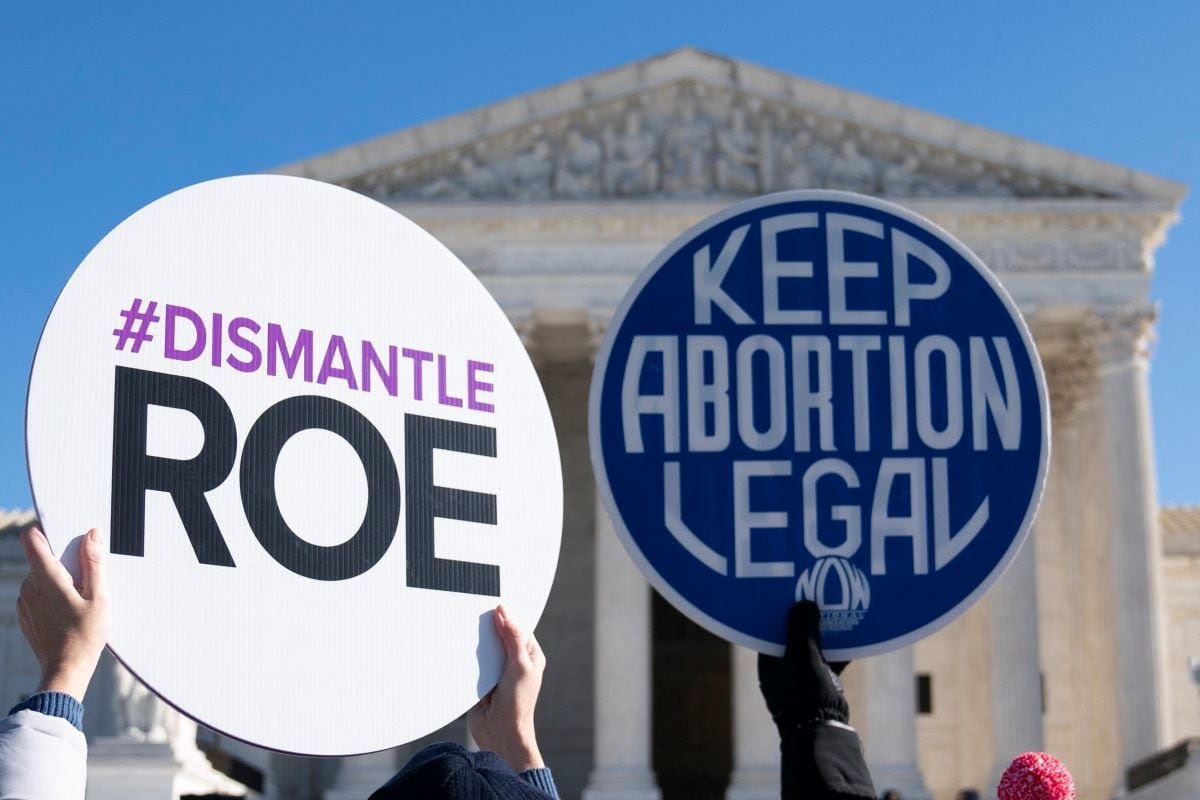What would happen if the Supreme Court of USA annul the constitutional right to abortion, in force since 1973 after the historic ruling in the Roe vs. Wade?
1.- What is the current situation?
Several states have enacted restrictions on abortion: Texas (South) banned it after six weeks of pregnancy, while Kentucky (East), Florida (Southeast), Idaho and Arizona (Southwest) passed restrictions after 15 weeks.
Meanwhile, a total ban in Oklahoma (south) – except in the event that the life of the mother is in danger – would come into force after the final ruling of the highest US Court, which is expected before June 30.
LOOK: The US Supreme Court could annul the right to abortion, according to a leak to the press
Surveys of abortion reveal that nearly a quarter of Americans believe it should always be legal, and a similar proportion believe it should be allowed in most cases.
Another quarter think that the voluntary interruption of pregnancy should be illegal in most cases and between 10% and 15% think that it should be illegal in all cases.
A CNN poll in January showed that 69% of those surveyed were against eliminating the Roe v. Wade, while 30% were in favor.
2.- What would you change?
If that ruling were repealed, the United States would return to the situation before 1973, when each state was free to prohibit or authorize abortion.
26 conservative states, most of them in the center and south of the country such as Wyoming, Tennessee or South Carolina, are ready to ban abortion completely.
But several Democratic states, including California, New Mexico and Michigan, quickly announced plans to enshrine abortion rights into law.
3.- What impact would it have on the midterm elections?
The leak of the draft fully impacts the race for the mid-term elections to be held in November, monopolizing the debate during the rest of the campaign.
President Joe Biden said Tuesday that if this leaked ruling passes, abortion laws will be up to individual states and “it will be up to voters to choose” officials who support the right to voluntary termination of pregnancy.
The possibility that the Supreme Court eliminates the ruling “Roe v. Wade” would further polarize Republicans and Democrats, who are already deeply divided.
Chuck Schumer, leader of the Senate Democrats, laid out what he believes is at stake on Tuesday: “The November election will have consequences as the rights of 100 million women are now on the ballot.”

4.- What can Congress do?
Biden and Schumer hope to expand the majority of Democrats in the Senate with the elections, now given only by the vice president’s vote that allows them to pass a federal law on abortion.
The only other option available to abortion advocates would be to change the Senate rules to reduce the number of votes needed to pass a law. But Republicans and a handful of Democratic lawmakers oppose it at the moment.
However, Schumer promised an upcoming vote on the legalization of abortion: “Every American will be able to see which side each senator is on,” while warning of the possibility that “our children have fewer rights than their parents.”
5.- Threat to other rights?
It is also argued that the arguments to reverse the precedent of “Roe vs. Wade” could apply to other cases where the Supreme Court has protected “fundamental rights” that are not spelled out in the Constitution, such as same-sex marriage, contraception and civil rights.
The leaked draft, written by Justice Samuel Alito, makes it clear that he does not see this as a danger, arguing that “our decision refers to the constitutional right to abortion and no other right.”
However, this does not convince academics, who point out that lawyers have a habit of using and amplifying successful arguments to apply them to related cases.
Source: Elcomercio

:quality(75)/cloudfront-us-east-1.images.arcpublishing.com/elcomercio/ATV3D2BD4NBWPOB7GR3YUFMIZ4.jpeg)

:quality(75)/cloudfront-us-east-1.images.arcpublishing.com/elcomercio/EPWSTDSR6RFANL6RN5AA2XIXMI.jpg)



